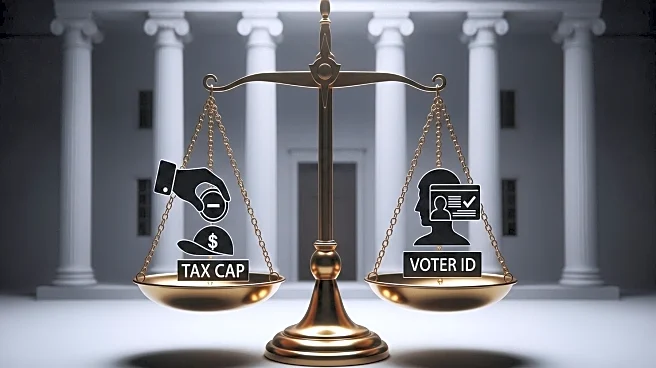What's Happening?
A panel of three Superior Court judges in North Carolina has ruled that two constitutional amendments, including a photo voter ID mandate, are enforceable. This decision comes three years after appeals judges suggested they could be nullified due to illegal racial bias in the districts of lawmakers who helped put them on the 2018 ballots. The amendments were approved by voters and include a voter ID requirement and a cap on income tax rates. The state NAACP had challenged these amendments, arguing they were passed with discriminatory intent. However, the panel found that the NAACP failed to prove this beyond a reasonable doubt. The ruling can be appealed, and the case may return to the state Supreme Court.
Why It's Important?
The enforcement of these amendments has significant implications for voting rights and tax policy in North Carolina. The voter ID law, upheld by the state Supreme Court, has been a contentious issue, with critics arguing it could disenfranchise minority voters. The income tax cap could affect state revenue and public services. The decision reflects ongoing debates over racial gerrymandering and its impact on legislative actions. The ruling may influence similar cases in other states, affecting national discussions on voting rights and racial equity.
What's Next?
The state NAACP is considering its next steps, which may include appealing the decision. If appealed, the case could return to the state Supreme Court, where the current Republican majority may influence the outcome. The ruling may also prompt legislative or judicial actions in other states facing similar challenges. Stakeholders, including civil rights groups and political leaders, will likely continue to debate the implications of voter ID laws and tax policies.









